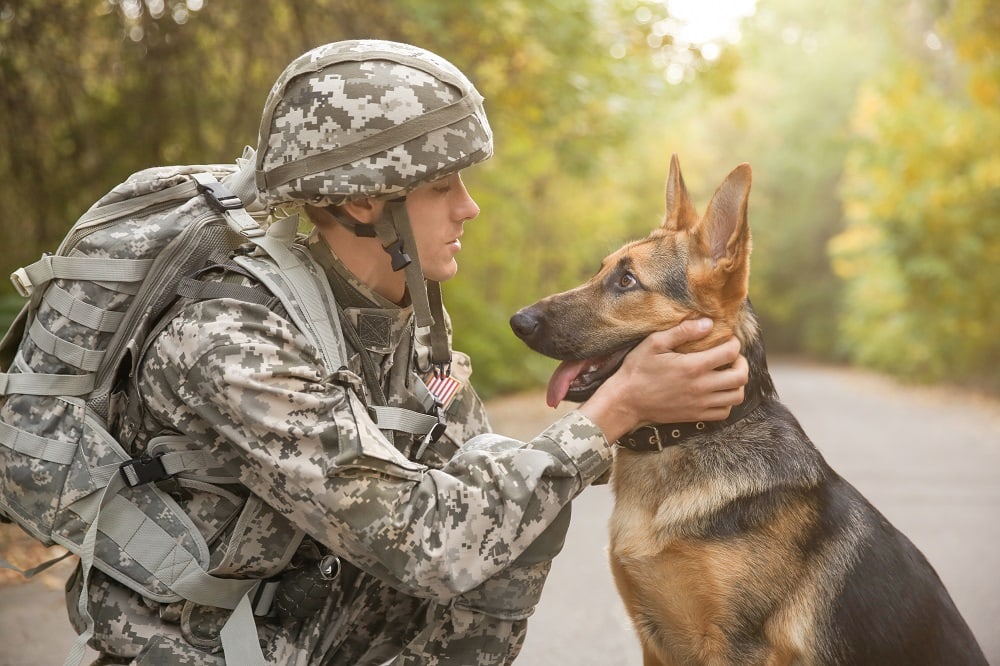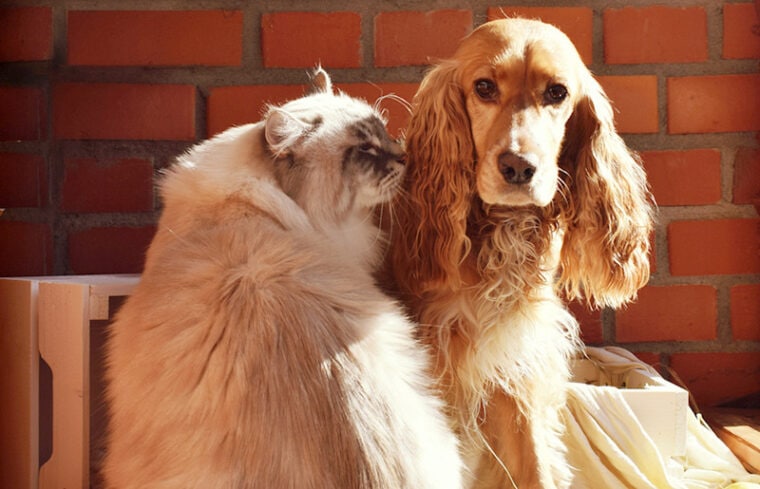
You may have heard something like “the world is your oyster” from your friends when they’re trying to motivate you for a job interview or some other major life event. You might have understood what they were trying to say, but are these figurative expressions actually a thing? Yes! They are known as idioms.
The words used in animal idioms don’t have literal meanings. Instead, they describe a specific feeling, emotion, or idea by associating them with different animals and their characteristics. For example, snails are slow, dogs bark a lot, and catching a wild goose is impossible.
If these exciting phrases have got your attention, why not learn about the most popular animal idioms and sayings? Keep reading to take your knowledge up a notch!
The 23 Animal Idioms and Sayings
1. Wild Goose Chase
If you’ve ever encountered a wild goose, you’d probably assume it’s almost impossible to catch these quick birds. Even if you try to run after one, you’ll only look funny. So, the idiom “wild goose chase” means chasing something impossible to attain.
The first use of “wild goose chase” was seen in the Romeo and Juliet (1595) play. He used the idiom to describe a horse race. Interestingly enough, the phrase has changed its context, but the meaning remains the same—something that’s hard to overtake.
While many people use this idiom to explain a hard-to-obtain thing, it also refers to a situation where the person has to take many directions. For example, suppose someone gave the wrong address to a restaurant. You can say, “I’ve been on a wild goose chase for an hour. Will you please send me the Google Map directions?”.

2. The World Is Your Oyster
This idiom is used as an optimistic approach toward the world. Just like opening an oyster is difficult, it’s not easy to find good opportunities in the world. Many difficulties will come, but you’ll ultimately get rewarded for your hard work. Remember the delicious taste of oysters? It makes all your efforts worth it!
Shakespeare used “the world is your oyster” in his 1602 play The Merry Wives of Windsor. The idiom is a positive approach toward life.
Sometimes, oysters also contain pearls. So, you must keep looking for an oyster to get a valuable treasure. You can use this phrase to give someone a motivational outlook toward life. For example, “You’re a brilliant student. The world is your oyster!”.
3. At a Snail’s Pace
We all know that snails run or move very slowly, so this idiom is relatively easier to understand. You can use it to describe something proceeding slowly or taking longer than it’s supposed to.
Let’s say you expected the bus to reach a stop by 10:30 am, but it’s already 10:35, and you’re still nowhere close to your destination. In this situation, you can say, “This bus is moving at a snail’s pace.” Again, this idiom was first used by William Shakespeare in his play Richard III from the 16th century in England.

4. Busy As a Bee
This is another idiom that’s self-explanatory. Bees spend their entire day collecting and making honey, making them one of the busiest insects. So, when someone seems occupied for too long, you can say they’re busy as a bee.
The context of using this idiom is positive. For example, “My daughter has been as busy as a bee for the past two days with her art project.” The history of this phrase dates back to 1386, when an English poet, Geoffrey Chaucer, used it in Canterbury Tales or The Squire’s Tale.
5. Watch Like a Hawk
Hawks are known for their sharp eyesight. The idiom “watch like a hawk” means observing or keeping an eye on someone very precisely or closely. The most common use of this phrase is in situations when you’re warning someone. For example, “Don’t go close to that thing. I’m watching you like a hawk.”
You can also use it to describe someone observing you closely. For instance, “My supervisor watches everyone like a hawk.” The general idea is to stop someone from making a mistake, but it can also be used in a positive situation. Like, “I watch like a hawk. I am the best choice for this project.”

6. Hold Your Horses
Whenever you hear this idiom, you instantly think of a cowboy pulling a horse’s rein to stop it. Well, that’s what “hold your horses” actually means. People use it when they want to stop someone from rushing things. For example, if your friend is talking too fast, you can say, “Hey, hold your horses. I didn’t understand a single word you said.”
Simply put, using “hold your horses” is another way of saying “please, wait” or “pause for a minute.” Many people also use it to ask someone to slow down before taking action or a big step.
When it comes to the origin, there is no exact documentation. You can find “hold your hosses” (hosses means horses in slang) in 19th-century prints in the US. The idiom with the modern spelling was first used in 1939’s Chatelaine.
7. Straight From the Horse’s Mouth
This is another horse-related idiom, which is related to the reliability of these animals. When any information comes from an authentic source, you can say it’s straight from the horse’s mouth. The purpose is to emphasize the authenticity of something.
It was first used in the 20th century, mainly for the people (trainers and jockeys) involved in horse racing. These individuals stay the closest to the horses and their owners, so they were considered the best sources to provide the best racing tips.
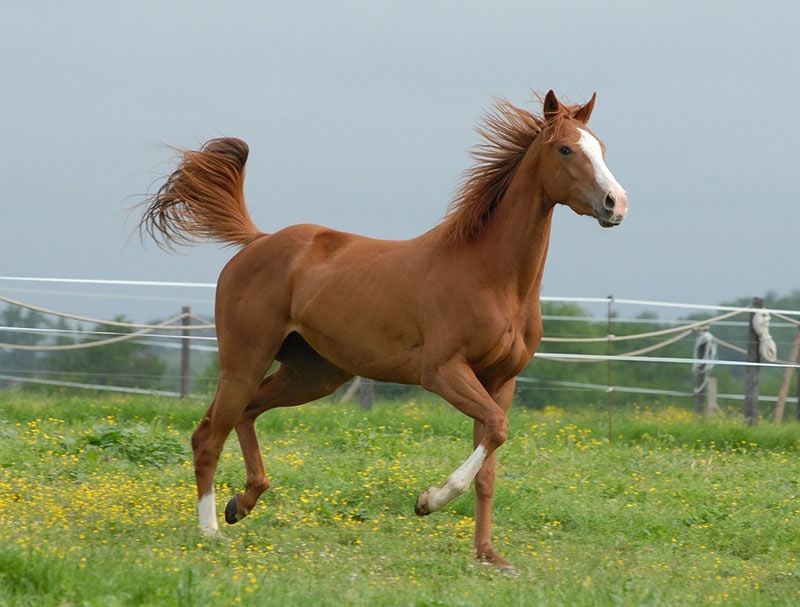
8. Mad As a Hornet
A hornet belongs to the family of wasps. It is considered one of the angriest insects that can be highly disastrous when provoked. Hornets also create a lot of pain for their prey and are generally quite dangerous. So, if you hear someone saying they’re mad as a hornet, you should run from there without thinking twice.
The idiom is popular in the US and many English-speaking nations. In fact, it is one of those phrases that people use in their day-to-day conversations. Don’t tell us that your mom has never said she is mad as a hornet!
You may have also heard people saying, “mad as a wet hen,” which means the same as “mad as a hornet.” It was first used in the early 1800s. At that time, the farmers used to awaken their hens from daydreaming by dunking them in water. As a result, the hens used to get very angry and react aggressively.
Hens aren’t violent in general, but hornets are. That’s why “mad as a hornet” is more popular today.
9. Get Your Ducks in a Row
You may have seen in cartoons that ducklings walk in a straight line or row behind their mother. Thus, the idiom “get your ducks in a row” means to organize something, a task, a project, or life in general. People also use this phrase casually to ask someone to be more organized.
It is also used in professional settings. For example, your manager may have said, “Get your ducks in a row. I will review your project’s progress in a few hours.”
So, where did this idiom come from? Well, the sources are unclear. Some people believe that it originated from the 1700s lawn bowling game. It involved setting duckpins in a row. Another possible origin is the duck tins lined up in a shooting gallery. The third comes from the real animals and their way of moving in a row behind their mothers.
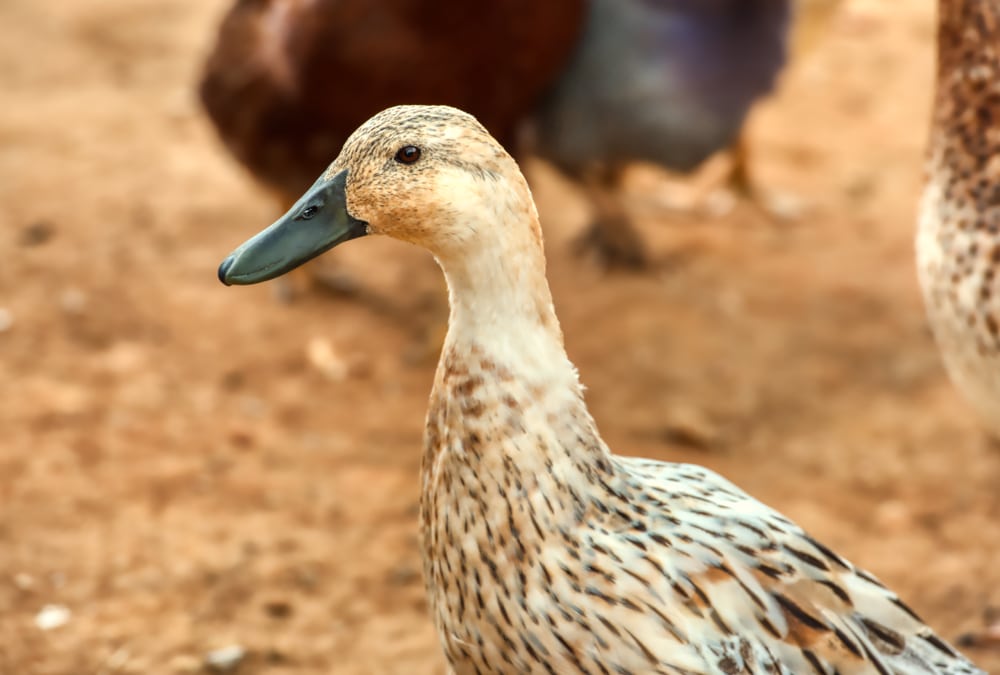
10. Bull in a China Shop
If you’ve visited a China shop, you know how sleek and delicate fine china dishes are. They’re made of porcelain, which adds to their fragility. So, when a reckless bull enters a China shop, it’s supposed to cause a big disaster.
The idiom “bull in a China shop” refers to a highly clumsy individual who is inexperienced in performing a particular task. For example, suppose someone messes up an important project. In such a situation, you can say, “She missed the project’s deadline because she acted like a bull in a China shop.”
11. Dog-Eat-Dog
Hearing “dog-eat-dog” from someone may sound weird, but it is actually used to describe a highly competitive situation or place. It could be a company or a school where humans won’t think twice about hurting someone just to get ahead of others. For example, you can say, “It’s a dog-eat-dog environment at my workplace.”
The origin of this idiom is believed to come from a famous Latin proverb, “A dog does not eat the flesh of a dog,” which was first used in a 1543 English print. It also appeared in Thomas Fuller’s book Gnomologia, released in 1732.

12. The Dog Days of Summer
This idiom has nothing to do with the actual dogs but the astronomical ones. Its history takes us back to the era of ancient Greeks, who assumed that Sirius—a dog star—is associated with the hottest days. When the star rises before the sun, it causes hot weather on Earth.
Unfortunately, Greeks believed a hot climate brings misfortunes or calamities to the Earth, including droughts and fevers. But that’s just the old tales. Nowadays, people mostly use “dog days” in slang or memes for cute dogs enjoying the time of their life.
13. Open a Can of Worms
“Open a can of worms” refers to creating more problems when trying to solve one. The origin of this idiom is unclear, but the most popular one is associated with the fishermen.
In the olden days, these professionals used to buy cans of worms to use as bait. So, they used to carry worms to the fishing location. Suppose one fisherman knocks the can over. In that case, they will have the additional problem of catching every worm.
However, today, “can of worms” is used as “Pandora’s box” that also refers to creating new problems. For example, you may have heard people saying, “Oh my! You’ve opened a can of worms with this information,” or “Wow! That’s a real Pandora’s box.”

14. Happy As a Clam
The idiom “happy as a clam” is only the first half of the complete phrase. It’s actually “happy as a clam at high tide.”
The idiom originated in the early 19th century. Clams can only be harvested at low tide, so they’re happy when the water is high. That’s the backstory of today’s “happy as a clam.”
15. I Will Be a Monkey’s Uncle
“I will be a monkey’s uncle” is as far from its actual meaning as an idiom could get. It describes an unexpected situation that surprises everyone. People use it in a humorous way to depict their shocking reactions. For example, “I have passed my Lieutenant exams. I’ll be a monkey’s uncle.”
The origin of this idiom is associated with Charles Darwin and his theory of evolution. In fact, you can think of it as a satirical response to Darwin’s views. The idiom became popular after Darwin published The Origin of Species in 1859 and The Descent of Man in 1871.
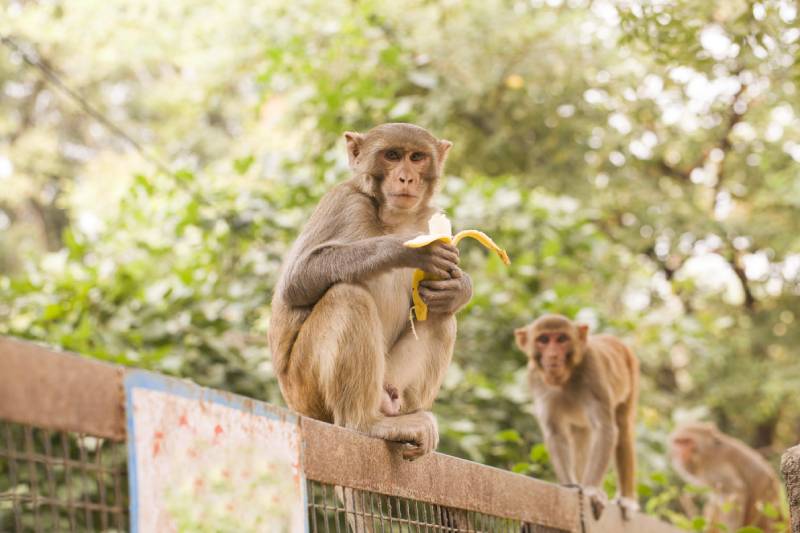
16. Like Shooting Fish in a Barrel
Think of a barrel filled with fish. You can quickly shoot a fish in it, right? Well, that’s what the idiom means—something very easy to attain or catch. For instance, if you’re an expert programmer, you can say that “writing this software’s code is like shooting fish in a barrel for me.”
The first use of this idiom was seen in the early 1900s when fish weren’t refrigerated. Instead, people used to pack and store them in big barrels filled to the rim. If someone takes a shot at the barrel, the bullet will surely hit any of the fish. Thus, nothing can be easier than shooting a fish in a barrel.
17. Let the Cat Out of the Bag
The idiom “let the cat out of the bag” means to reveal a secret without intention. You can use it to describe a situation in which things got out of your hands, and you had to say something you weren’t supposed to.
For instance, you’re planning a surprise party for your friend, but they arrive earlier than expected. You can’t think of any excuse to hide the plan and tell them that you’ve organized a party for them. That’s when you can say, “I had no option. I let the cat out of the bag.”
The origin of this idiom is related to actual cats and bags. It was a common practice among vendors in medieval markets to sell a cat in the name of a pig to farmers. They manipulate the farmers into believing it’s a pig and receive a higher price for a cat. When these farmers reach their homes and let the cat out of the bag, they realize they’ve been played.
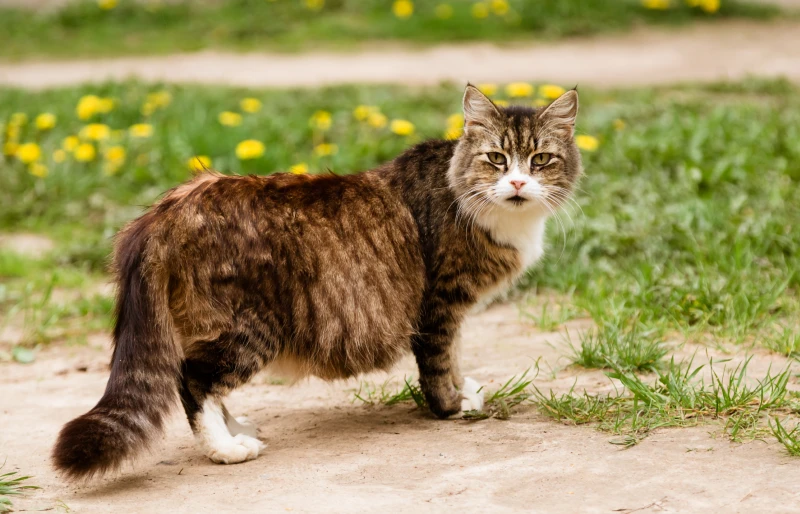
18. Let Sleeping Dogs Lie
Let sleeping dogs lie leaving something behind or forgetting about anything. It makes sense in those situations that you can’t handle or change. So, your friend will ask you to let sleeping dogs lie. Although this animal seems peaceful when sleeping, it can act abruptly if woken up suddenly.
Many people also use this idiom to ask someone to mind their own business. For example, “I’m not complaining about your rude behavior to the manager. I’m letting sleeping dogs lie.”
Geoffrey Chaucer was the first person who used “let sleeping dogs lie” in his book. The context was to avoid waking up a sleeping dog because it may react unpredictably.
19. Barking Up the Wrong Tree
This idiom is more like a pun. The term “bark” has two meanings: one relates to dogs, and the other is to trees. The “bark” used in this idiom refers to dogs’ barking.
It describes a situation in which someone has a wrong approach to achieving something. For example, you can say, “David is looking for the solution at the wrong place. I think he’s barking up the wrong tree.”
In the 19th century, this idiom was used in its literal sense. At that time, hunting dogs chased their prey until they climbed a tree. It left the dogs clueless, so they kept standing close to the tree to alert the hunters where to look. But sometimes, animals like raccoons would run from tree to tree, leaving the dog and the hunter barking up the wrong tree.

20. All Bark and No Bite
Dogs are quite famous in the idiom world. We know that all dogs bark, but not all bite or cause harm. So, when someone says “all bark and no bite,” they mean that thing is only giving them verbal threats. It won’t act on them.
Simply put, the idiom best describes something that seems dangerous but is harmless. For instance, “My mom may seem strict, but she is all bark and no bite.”
This idiom originates from the mid-1800s and is used alongside “his bark is worse than his bite.” Both mean the same thing—a dangerously-looking barking dog that doesn’t actually bite anyone.
21. You Can’t Teach an Old Dog New Tricks
This is the last dog-related idiom on this list! “You can’t teach an old dog new tricks” means that it is impossible to help an old person learn something new.
Many people also use it to say that you can’t change anyone’s routine. For instance, “I have been teaching my granny how to make calls, but all my efforts are in vain. I think you can’t teach an old dog new tricks.”
This idiom was first used around 1636 with a slight variation. John Fitzherbert used it in the Book of Husbandry, published in 1523, to describe an old dog that can’t learn a new skill. Years later, it is still used in the same context.

22. Wolf in Sheep’s Clothing
“Wolf in sheep’s clothing” means someone dangerous disguising himself as innocent. You can think of a wolf acting as a sheep. That’s exactly what this idiom means. People use it to warn others to be careful of someone who appears lovely but is harmful. For instance, “Don’t get too close to him. He is a wolf in sheep’s clothing.
This idiom’s origin is unclear, but it was first used in the King James Version Bible. In the Gospel of Matthew, Jesus describes false prophets as “wolves in sheep’s clothing” in the Sermon on the Mount.
23. Butterflies in One’s Stomach
That’s something every one of us has experienced at some point. Well, not the actual butterflies, but an emotion that feels like many butterflies are fluttering in your stomach. That’s when you’re nervous.
Let’s say you have a job interview at your dream company. In that case, you can say, “I am so nervous yet excited. It’s like there are so many butterflies in my stomach.”
Bill Gardener was the man who used this idiom for the first time in 1943. He described his nervousness in taking the first jump as a paratrooper. Nowadays, “butterflies in one’s stomach” is mainly used for romantic feelings.

Conclusion
We have only listed a handful of animal idioms and sayings in this post, but there are many more! As you see, animals, including insects, mammals, reptiles, etc., are popular in English literature. People use animal idioms to describe feelings that only words can’t explain.
The purpose is to use animals’ unique characteristics and relate them to a situation to express emotions more clearly, and we hope we made it as easy as shooting fish in a barrel.
Featured Image Credit: Kovalevskaya Polina, Shutterstock



